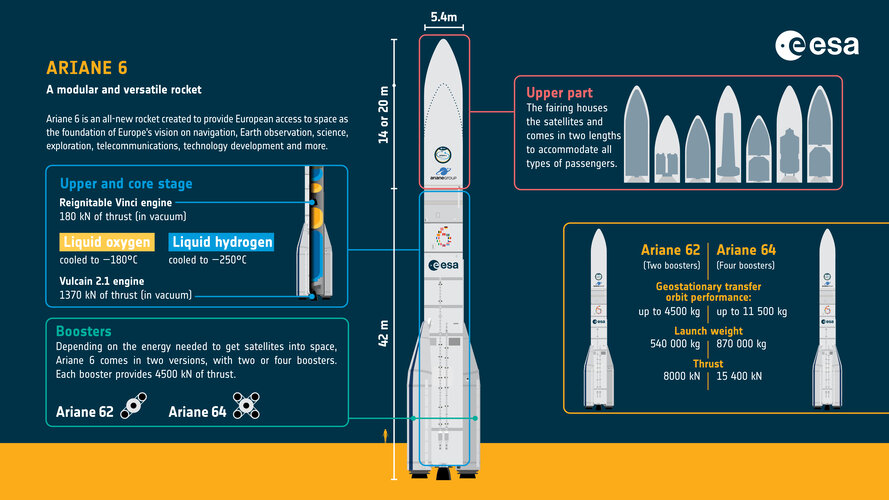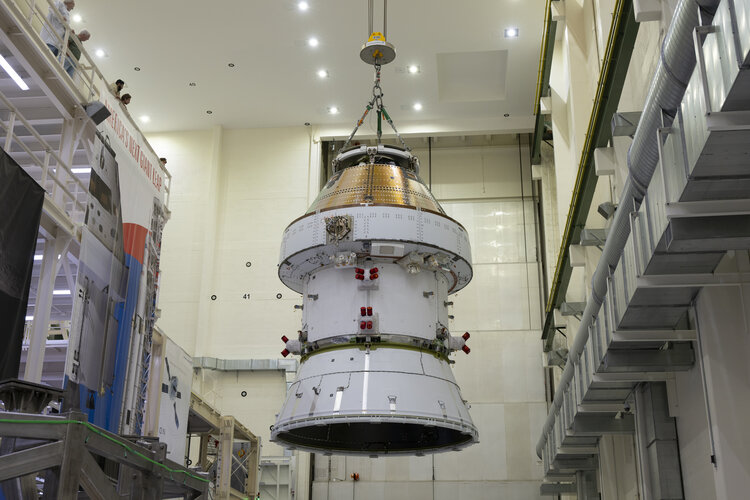
Copernical Team
Friday, 10 May 2024 09:27
NASA Field Geology Training Enhances Artemis Mission Support
Los Angeles CA (SPX) May 10, 2024
 In preparation for the Artemis missions, NASA staff including engineers, managers, and flight directors, recently engaged in a field geology course in Northern Arizona's volcanic terrain. This training is designed to equip the Artemis mission support teams with a practical understanding of lunar geology.
The two-and-a-half-day program mirrors aspects of the intensive training that astronau
In preparation for the Artemis missions, NASA staff including engineers, managers, and flight directors, recently engaged in a field geology course in Northern Arizona's volcanic terrain. This training is designed to equip the Artemis mission support teams with a practical understanding of lunar geology.
The two-and-a-half-day program mirrors aspects of the intensive training that astronau
 In preparation for the Artemis missions, NASA staff including engineers, managers, and flight directors, recently engaged in a field geology course in Northern Arizona's volcanic terrain. This training is designed to equip the Artemis mission support teams with a practical understanding of lunar geology.
The two-and-a-half-day program mirrors aspects of the intensive training that astronau
In preparation for the Artemis missions, NASA staff including engineers, managers, and flight directors, recently engaged in a field geology course in Northern Arizona's volcanic terrain. This training is designed to equip the Artemis mission support teams with a practical understanding of lunar geology.
The two-and-a-half-day program mirrors aspects of the intensive training that astronau
Published in
News
Tagged under
Thursday, 09 May 2024 08:49
Ariane 6 infographic: at a glance
 Image:
Ariane 6 infographic: at a glance
Image:
Ariane 6 infographic: at a glance
Published in
News
Tagged under
Thursday, 09 May 2024 07:15
Apollo to Artemis
 Image:
Apollo to Artemis
Image:
Apollo to Artemis
Published in
News
Tagged under
Thursday, 09 May 2024 20:41
CesiumAstro provides multi-beam Ka-band payloads for Rocket Lab under Tranche 2 contract
Los Angeles CA (SPX) May 08, 2024
 CesiumAstro, known for its advanced phased array communications technology for space and airborne systems, announced its selection by Rocket Lab (Nasdaq: RKLB) to supply its Vireo active electronically scanned array (AESA) radio frequency (RF) communications payload for integration into 18 space vehicles (SVs) supporting the Space Development Agency's (SDA) Tranche 2 Transport Layer (T2TL).
CesiumAstro, known for its advanced phased array communications technology for space and airborne systems, announced its selection by Rocket Lab (Nasdaq: RKLB) to supply its Vireo active electronically scanned array (AESA) radio frequency (RF) communications payload for integration into 18 space vehicles (SVs) supporting the Space Development Agency's (SDA) Tranche 2 Transport Layer (T2TL).
Published in
News
Tagged under
Thursday, 09 May 2024 20:41
Ariane 6 set to launch 3Cat-4 CubeSat for Earth observation
Paris, France (SPX) May 09, 2024
 Ariane 6, Europe's latest heavy-lift launcher, is set for its inaugural flight, carrying multiple missions each tasked with unique objectives ranging from Earth observation to technology testing in orbit. This article highlights the 3Cat-4 mission, a 1-kg Earth Observation CubeSat developed under ESA's 'Fly Your Satellite!' program by the Universitat Politecnica de Catalunya.
The mission o
Ariane 6, Europe's latest heavy-lift launcher, is set for its inaugural flight, carrying multiple missions each tasked with unique objectives ranging from Earth observation to technology testing in orbit. This article highlights the 3Cat-4 mission, a 1-kg Earth Observation CubeSat developed under ESA's 'Fly Your Satellite!' program by the Universitat Politecnica de Catalunya.
The mission o
 Ariane 6, Europe's latest heavy-lift launcher, is set for its inaugural flight, carrying multiple missions each tasked with unique objectives ranging from Earth observation to technology testing in orbit. This article highlights the 3Cat-4 mission, a 1-kg Earth Observation CubeSat developed under ESA's 'Fly Your Satellite!' program by the Universitat Politecnica de Catalunya.
The mission o
Ariane 6, Europe's latest heavy-lift launcher, is set for its inaugural flight, carrying multiple missions each tasked with unique objectives ranging from Earth observation to technology testing in orbit. This article highlights the 3Cat-4 mission, a 1-kg Earth Observation CubeSat developed under ESA's 'Fly Your Satellite!' program by the Universitat Politecnica de Catalunya.
The mission o
Published in
News
Tagged under
Thursday, 09 May 2024 20:41
Space Tech Firm Xona Secures $19M for Enhanced Satellite Navigation Network
Los Angeles CA (SPX) May 09, 2024
 Xona, a developer of a new satellite network, has announced the successful closure of a $19 million Series A funding round, led by Future Ventures and Seraphim Space, with contributions from NGP Capital, Industrious Ventures, Murata Electronics, Space Capital, and Aloniq.
The capital raised will expedite the rollout of Xona's low Earth orbit (LEO) satellite network, marking the initiation
Xona, a developer of a new satellite network, has announced the successful closure of a $19 million Series A funding round, led by Future Ventures and Seraphim Space, with contributions from NGP Capital, Industrious Ventures, Murata Electronics, Space Capital, and Aloniq.
The capital raised will expedite the rollout of Xona's low Earth orbit (LEO) satellite network, marking the initiation
 Xona, a developer of a new satellite network, has announced the successful closure of a $19 million Series A funding round, led by Future Ventures and Seraphim Space, with contributions from NGP Capital, Industrious Ventures, Murata Electronics, Space Capital, and Aloniq.
The capital raised will expedite the rollout of Xona's low Earth orbit (LEO) satellite network, marking the initiation
Xona, a developer of a new satellite network, has announced the successful closure of a $19 million Series A funding round, led by Future Ventures and Seraphim Space, with contributions from NGP Capital, Industrious Ventures, Murata Electronics, Space Capital, and Aloniq.
The capital raised will expedite the rollout of Xona's low Earth orbit (LEO) satellite network, marking the initiation
Published in
News
Tagged under
Thursday, 09 May 2024 20:41
Where space weather originates
Paris, France (SPX) May 09, 2024
 The Virtual Space Weather Modelling Centre, through a collaborative effort, has developed a simulation that visualizes the initiation of space weather. The model demonstrates the emergence of a flux rope from the Sun's magnetic field, which may carry millions of tons of plasma into space during a Coronal Mass Ejection (CME).
This visualization uses the COCONUT magnetohydrodynamic model cre
The Virtual Space Weather Modelling Centre, through a collaborative effort, has developed a simulation that visualizes the initiation of space weather. The model demonstrates the emergence of a flux rope from the Sun's magnetic field, which may carry millions of tons of plasma into space during a Coronal Mass Ejection (CME).
This visualization uses the COCONUT magnetohydrodynamic model cre
 The Virtual Space Weather Modelling Centre, through a collaborative effort, has developed a simulation that visualizes the initiation of space weather. The model demonstrates the emergence of a flux rope from the Sun's magnetic field, which may carry millions of tons of plasma into space during a Coronal Mass Ejection (CME).
This visualization uses the COCONUT magnetohydrodynamic model cre
The Virtual Space Weather Modelling Centre, through a collaborative effort, has developed a simulation that visualizes the initiation of space weather. The model demonstrates the emergence of a flux rope from the Sun's magnetic field, which may carry millions of tons of plasma into space during a Coronal Mass Ejection (CME).
This visualization uses the COCONUT magnetohydrodynamic model cre
Published in
News
Tagged under
Thursday, 09 May 2024 20:41
Ozone's influence on exoplanetary climate dynamics highlighted in new research
London, UK (SPX) May 09, 2024
 In a significant study led by Dr. Assaf Hochman from the Fredy and Nadine Herrmann Institute of Earth Sciences at The Hebrew University of Jerusalem, new insights have been unveiled into the atmospheric dynamics of Earth-like exoplanets, with a focus on ozone's role in shaping planetary climates. This research represents a major step in understanding potentially habitable worlds beyond our solar
In a significant study led by Dr. Assaf Hochman from the Fredy and Nadine Herrmann Institute of Earth Sciences at The Hebrew University of Jerusalem, new insights have been unveiled into the atmospheric dynamics of Earth-like exoplanets, with a focus on ozone's role in shaping planetary climates. This research represents a major step in understanding potentially habitable worlds beyond our solar
 In a significant study led by Dr. Assaf Hochman from the Fredy and Nadine Herrmann Institute of Earth Sciences at The Hebrew University of Jerusalem, new insights have been unveiled into the atmospheric dynamics of Earth-like exoplanets, with a focus on ozone's role in shaping planetary climates. This research represents a major step in understanding potentially habitable worlds beyond our solar
In a significant study led by Dr. Assaf Hochman from the Fredy and Nadine Herrmann Institute of Earth Sciences at The Hebrew University of Jerusalem, new insights have been unveiled into the atmospheric dynamics of Earth-like exoplanets, with a focus on ozone's role in shaping planetary climates. This research represents a major step in understanding potentially habitable worlds beyond our solar
Published in
News
Tagged under
Thursday, 09 May 2024 20:41
NASA Advances Climate Research with New Earth System Explorers Program Proposals
Los Angeles CA (SPX) May 08, 2024
 NASA has selected four new proposals for concept studies as part of its Earth System Explorers Program, aimed at enhancing our understanding of key Earth science areas such as greenhouse gases, the ozone layer, ocean currents, and global ice changes.
These investigations align with recommendations from the 2017 Decadal Survey by the National Academies of Sciences, Engineering, and Medicine
NASA has selected four new proposals for concept studies as part of its Earth System Explorers Program, aimed at enhancing our understanding of key Earth science areas such as greenhouse gases, the ozone layer, ocean currents, and global ice changes.
These investigations align with recommendations from the 2017 Decadal Survey by the National Academies of Sciences, Engineering, and Medicine
 NASA has selected four new proposals for concept studies as part of its Earth System Explorers Program, aimed at enhancing our understanding of key Earth science areas such as greenhouse gases, the ozone layer, ocean currents, and global ice changes.
These investigations align with recommendations from the 2017 Decadal Survey by the National Academies of Sciences, Engineering, and Medicine
NASA has selected four new proposals for concept studies as part of its Earth System Explorers Program, aimed at enhancing our understanding of key Earth science areas such as greenhouse gases, the ozone layer, ocean currents, and global ice changes.
These investigations align with recommendations from the 2017 Decadal Survey by the National Academies of Sciences, Engineering, and Medicine
Published in
News
Tagged under
Thursday, 09 May 2024 20:41
International SWOT Mission Can Improve Flood Prediction
Pasadena CA (JPL) May 08, 2024
 A partnership between NASA and the French space agency, the satellite is poised to help improve forecasts of where and when flooding will occur in Earth's rivers, lakes, and reservoirs.
Rivers, lakes, and reservoirs are like our planet's arteries, carrying life-sustaining water in interconnected networks. When Earth's water cycle runs too fast, flooding can result, threatening lives and propert
A partnership between NASA and the French space agency, the satellite is poised to help improve forecasts of where and when flooding will occur in Earth's rivers, lakes, and reservoirs.
Rivers, lakes, and reservoirs are like our planet's arteries, carrying life-sustaining water in interconnected networks. When Earth's water cycle runs too fast, flooding can result, threatening lives and propert
 A partnership between NASA and the French space agency, the satellite is poised to help improve forecasts of where and when flooding will occur in Earth's rivers, lakes, and reservoirs.
Rivers, lakes, and reservoirs are like our planet's arteries, carrying life-sustaining water in interconnected networks. When Earth's water cycle runs too fast, flooding can result, threatening lives and propert
A partnership between NASA and the French space agency, the satellite is poised to help improve forecasts of where and when flooding will occur in Earth's rivers, lakes, and reservoirs.
Rivers, lakes, and reservoirs are like our planet's arteries, carrying life-sustaining water in interconnected networks. When Earth's water cycle runs too fast, flooding can result, threatening lives and propert
Published in
News
Tagged under

